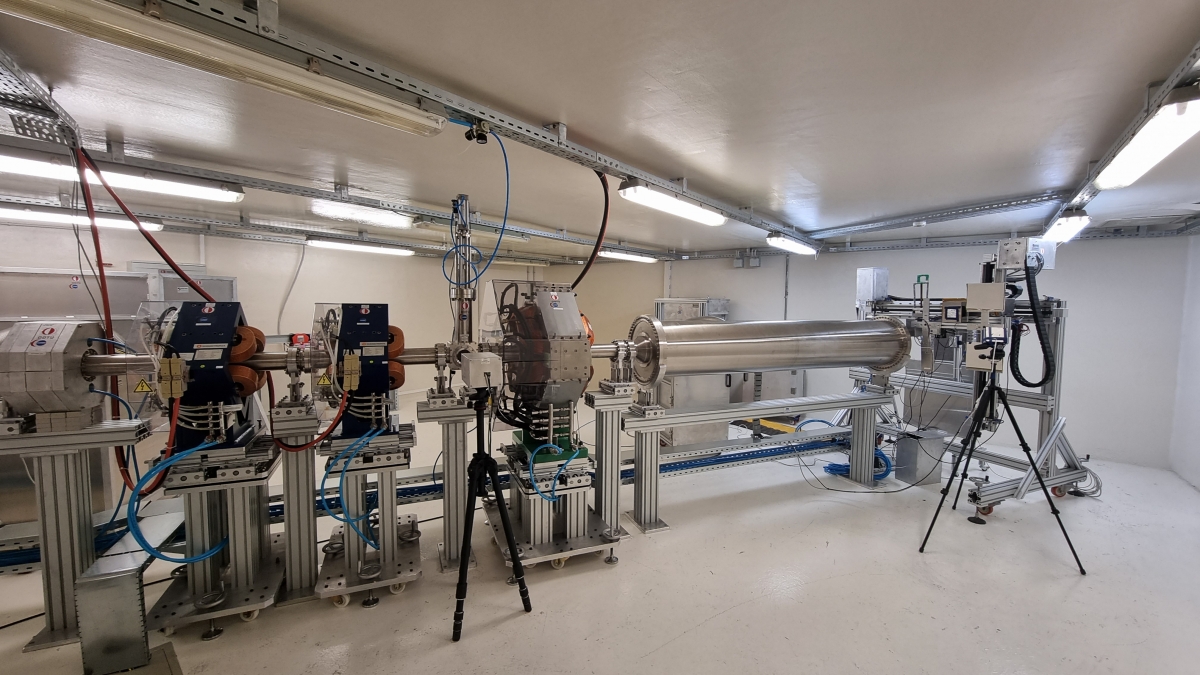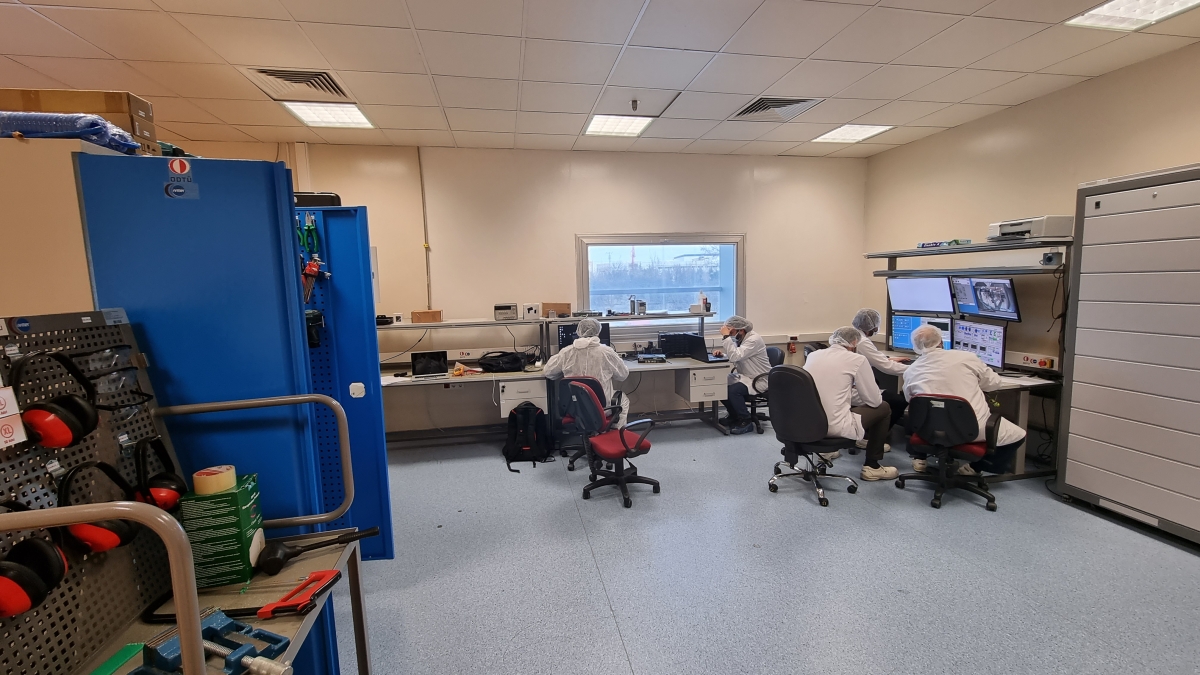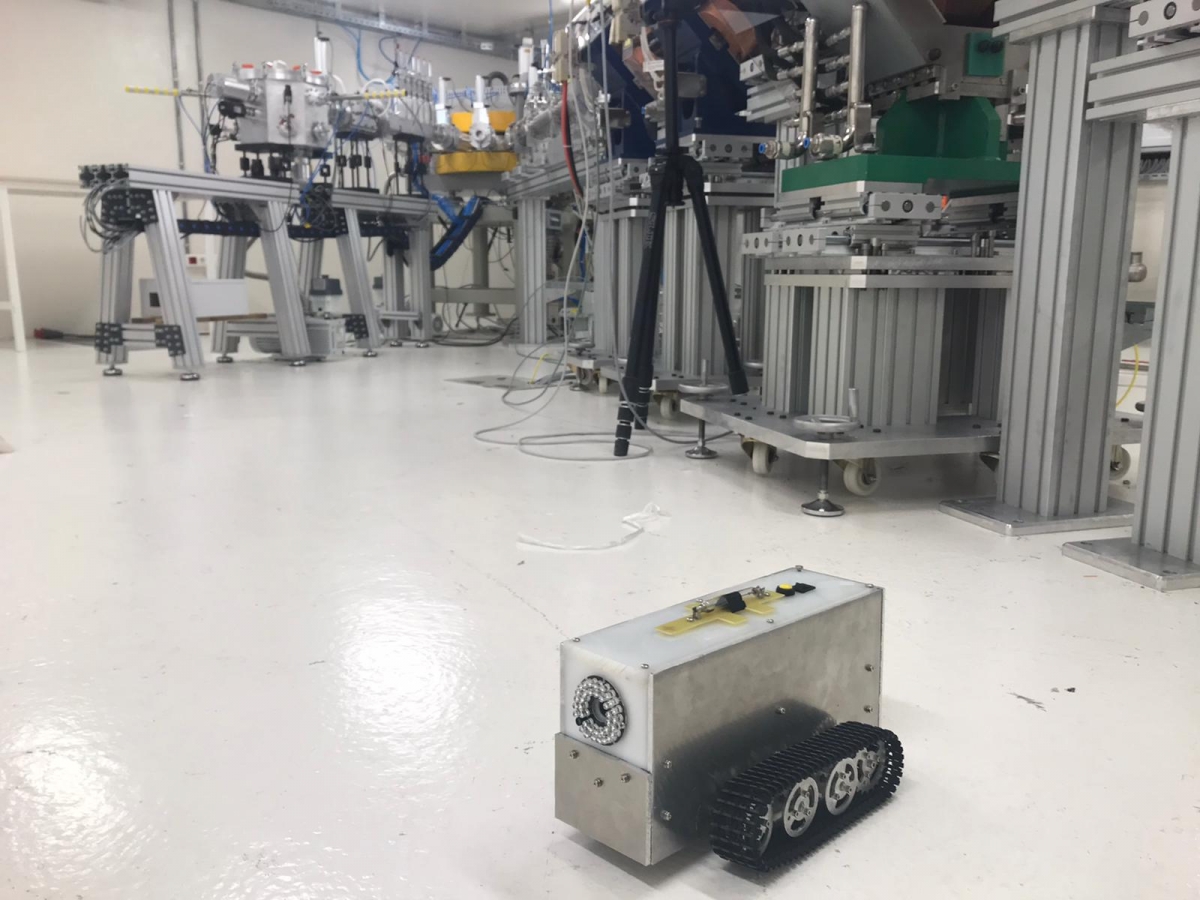METU - Defocusing Beam Line Laboratory :
METU-DBL (Defocusing Beam-Line) is a proton irradiation facility operated by METU-IVMER. It is located within the Proton Accelerator Facility, which was inaugurated in 2012 at the Sarayköy Nuclear Research and Training Center with the support of the Ministry of Development and the Turkish Atomic Energy Authority.
METU-DBL can deliver a continuous beam of protons with a kinetic energy selectable between 10–30 MeV and fluxes ranging from 10⁶ to 10¹⁰ protons/cm²/second. The beam size is 21.55 cm × 15.40 cm, with a uniformity of 6%. According to user requirements, the beam can be collimated to smaller sizes for improved uniformity. Users can also opt for a vacuum box for sample irradiation and a germanium detector to measure the radioactivation of samples post-irradiation.
The beam delivered to the target after passing 3 quadropole magnets, thin scattering films and collimators, is in accordinace with the ESA ESCC NO. 25100 standard. METU-DBL is the first facility in Türkiye capable of conducting Single-Event-Effect (SEE) radiation testing.
METU-DBL was initiated as a project on August 31, 2015, with the support of the Ministry of Development. It was the first knowledge transfer under the CERN Associate Membership Agreement, which was signed on May 12, 2014, with the participation of Minister of Energy and Natural Resources Taner Yıldız and was published in the Official Gazette No. 6587 on February 3, 2015. The facility was officially opened on December 5, 2019. CERN contributed to the beam optics design and magnet testing of METU-DBL.
As of March 2025, 132 tests have been performed at METU-DBL. Some of the tested components and users include solar panels, lithium-ion batteries, control cards, and multilayer insulation blankets developed for Türkiye’s İMECE satellite project, as well as components and materials from TÜBİTAK BİLGEM UEKAE YITAL, TÜBİTAK UZAY (Türkiye), Fergani Space (Türkiye), and Axiom Space (USA).
The development of METU-DBL was carried out by a team consisting of three Ph.D. students, two master’s students, four engineers, two technicians, and one administrative personnel. Currently, the facility employs three physicists, two technicians, and one administrative personnel.
Before radiation tests, analyses are conducted using reliable simulation programs widely used in radiation and nuclear physics. These analyses provide information about potential radioisotopes and dose rates during radiation testing. The data obtained from sensors and meters at METU-DBL have been found to be consistent with simulation results. During the design phase, simulation programs were also utilized to develop radiation-resistant shielding using materials such as lead, aluminum, and polyethylene. This shielding ensures that METU-DBL electronics operate without performance degradation while maintaining a safe environment for personnel.


Control Room

Mobile Radiation Measurement Robot